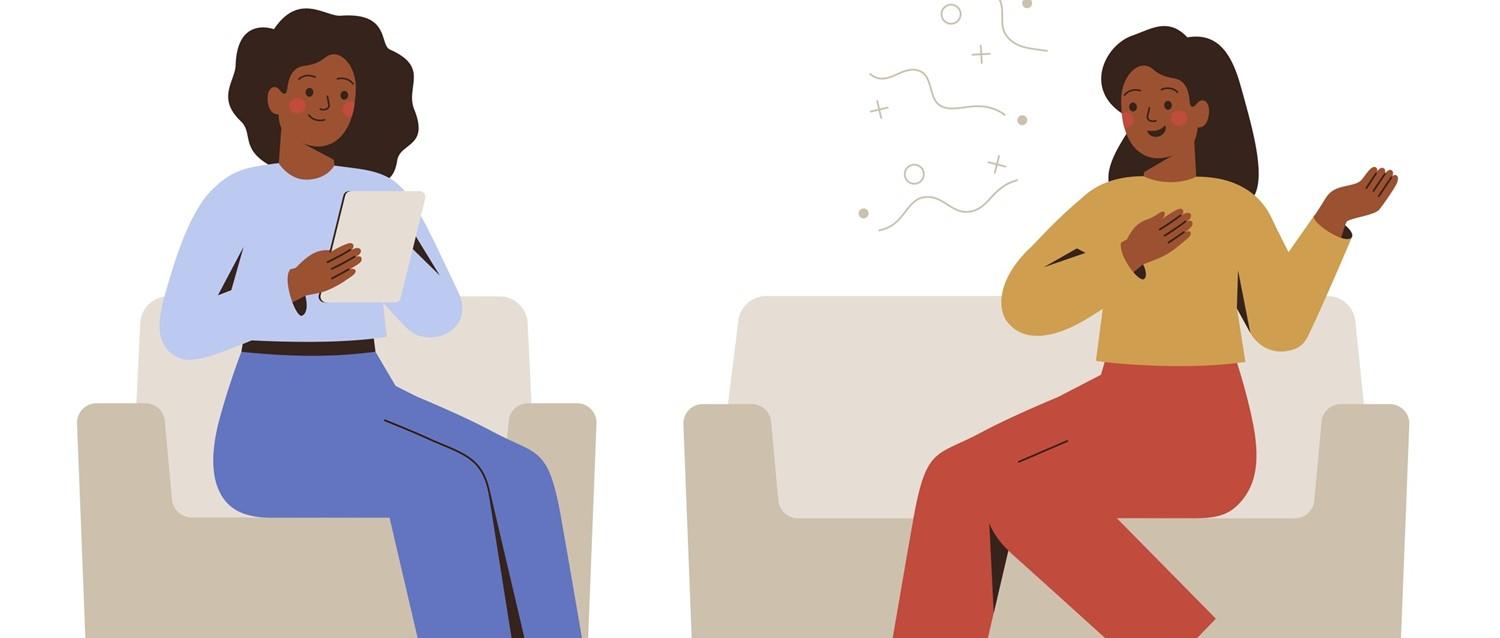
Could you benefit from music therapy?
Peer reviewed by Dr Colin Tidy, MRCGPLast updated by Victoria RawLast updated 28 Nov 2025
Meets Patient’s editorial guidelines
- DownloadDownload
- Share
- Language
- Discussion
Whether you're blasting Kate Bush, or shredding along to Metallica (Stranger Things fans, unite!), the right tune can turn even the most Upside Down day right-side up.
Music therapy is the clinical practice that uses the power of music to help you explore your innermost thoughts and feelings. Not only can this treatment help people struggling with mental wellbeing - it has been shown to positively affect people with physical illnesses, disabilities, and a wide range of long-term conditions.
In this article:
Continue reading below
What is music therapy?
Ancient civilisations recognised the power of music to heal, prescribing it as medicine for all kinds of illnesses and disease. These days, music therapy is an established clinical practice with the potential to improve the wellbeing of almost anyone in need.
Music has the ability to lift our mood and to energise us or relax our minds, depending on the pace and melody. This makes music therapy a great option for people with depression, anxiety and other mental health disorders.
Yet, music's potential for healing doesn't stop there. If your life has been affected by a physical health problem - whether this be illness, injury, or disability - or by particular social needs that make life challenging, then music therapy could make a difference in your life too.
Types of music therapy
Music therapy isn't as straightforward as finding and listening to a fast-paced, happy-sounding song. Rather, an accredited professional called a music therapist has special methods to help people achieve certain goals. This may involve creating personalised treatment plans.
We’ll take you through some popular music therapy techniques, each designed to support emotional wellbeing.
Nordoff-Robbins music therapy
What: improvising a tune on an instrument - usually something that's easy to play, like a drum or cymbal - while your therapist plays another instrument.
Why: improvisation encourages self-expression, which in turn can be a healthy outlet for feelings that are otherwise hard to communicate.
Cognitive behavioural music therapy (CBMT)
What: cognitive behavioural therapy (CBT), a type of talking therapy, is combined with listening to music, singing, or playing an instrument in a structured manner.
Why: adding music to CBT can help to reinforce what you discuss with your therapist, such as new positive ways of thinking and behaviours.
Vocal psychotherapy
What: creating different sounds through various vocal exercises and breathing techniques.
Why: to stimulate emotions and help you connect with feelings you may not have known you had.
Analytical music therapy
What: using improvisation to sing or play an instrument.
Why: to help you express any unconscious thoughts that need addressing with your music therapist.
Benenzon music therapy
What: your therapist finds sounds that best match your psychological state and emotions.
Why: by creating your musical sound identity, your therapist helps you connect with these emotions so you can both analyse them and begin to heal.
Community music therapy
What: community music therapy sessions where you engage in music as part of a group, rather than in a one-on-one session with a therapist.
Why: singing or dancing as part of a group can uplift your mood further by forming bonds between you and the other members - particularly helpful for those who feel isolated or lonely.
Willingness, not talent
There are so many different ways to create, listen to, or use music. Many music therapy sessions require you to be an active and creative participant - you might write a song, play an instrument, dance, or sing. This isn't about having musical ability or skill, but about opening yourself up to the influence of music.
It's not always going to be easy, but stepping outside your comfort zone is important in all forms of therapy. By trying your best, you may be surprised at just how quickly you can free yourself from embarrassment or self-consciousness.
Continue reading below
Benefits of music therapy for everyone
Everyone has the ability to respond positively to music. You may unwind after a hard day's work by listening to classical radio in the car, or feel uplifted and energised by a DJ set on a night out.
But does music therapy as a certified practice have a place in everyone's lives? Experts say yes, if you would like to try music therapy and have a particular goal, you're welcome to sign up for sessions.
General benefits of music therapy include:
General calmness - research has shown that is effective for stress relief because it lowers cortisol, a stress hormone1.
Your happiness - it can release endorphins and dopamine, two hormones associated with pleasure2.
Improved self-esteem - it's a form of self-expression that allows you to focus on yourself. This is a form of self-care that has been found to boost self-esteem.
Managing your blood pressure and heart rate - it's a safe and non-medicinal way to reduce high blood pressure and a high heart rate3.
There is no age limit for music therapy. Many children, teenagers, adults, and elderly people have reaped the rewards of this versatile and enjoyable well-being tool.
What conditions can music therapy treat?
There's plenty of strong evidence that music therapy can help people manage a wide range of health conditions and issues - including mental disorders, physical illnesses, disabilities, injuries, and long-term diseases.
The list of conditions that music therapy can help is long, but includes4:
Common conditions that music therapy is used for
Let's take a closer look at how this type of therapy can make a positive difference in these people's lives.
Children with autism
There is a growing feeling that music therapy can improve the lives of children with autism. According to the National Autistic Society, following therapy many children have shown improvements in their ability to communicate, cognitive development, social skills, propensity for self-expression, sense of empowerment, and creative abilities5.
People with depression and anxiety
Music can reduce our stress hormones1 and boost our happy hormones2. Research has shown that this can make music therapy an effective, non-medicinal treatment for both depression and anxiety. It's most effective when combined with usual treatments, such as psychotherapy or antidepressant drugs6.
People in pain
Music also has the power to help people cope with physical pain. For example, many women have reported that music therapy-assisted childbirth helped them cope with the physical pain of labour7, and the same results have been noted for people with surgical or injury-induced pain8. For those managing long-term pain conditions, music therapy may help people to focus on positive pain-free memories when their symptoms get bad.
The visually impaired
Music can help the blind or those with limited sight express themselves and communicate with the world. Often, children with visual impairment can find communication difficult, but learning to play music or to sing can be a creative outlet that can help improve any emotional or social problems related to their disability. The intervention of music in forms of movement can even improve their motor skills9.
People living with cancer
For people living with cancer, it's thought that music therapy can be useful at every stage of their journey. Through diagnosis and treatments such as radiotherapy and chemotherapy, it can provide some much-needed relief for feelings of anxiety and depression. It may even help people cope with the unpleasant side-effects of chemotherapy, such as nausea10.
Where to find a music therapist
You can find music therapists in private practices across the UK, as well as in some community health centres, rehabilitation facilities, and hospitals. Nordoff-Robins, one of the main music therapy providers in the UK, have an online self-referral form to help you find your nearest centre.
Continue reading below
Further reading
Patient picks for Mental health therapy

Treatment and medication
Can you have therapy if you don't have a mental health problem?
There are many misconceptions about therapy, including that it's only for people who are struggling with a mental health problem. This is not necessarily the case. Therapy can be a great way to explore and understand the issues we navigate every day, including decisions to do with work, relationships or general life.
by Lydia Smith

Brain and nerves
The power of nostalgia: what is Reminiscence Therapy?
A touch of nostalgia can lift your spirits. But it may be able to boost your brain, as well as warm your heart. Positive reflections on the past are now being used as a therapeutic tool for people with dementia. If a loved one is facing cognitive decline, learn how the power of reminiscence therapy might positively impact their life.
by Victoria Raw
Article history
The information on this page is peer reviewed by qualified clinicians.
Next review due: 28 Nov 2028
28 Nov 2025 | Latest version
23 Feb 2023 | Originally published
Authored by:
Amberley Davis

Ask, share, connect.
Browse discussions, ask questions, and share experiences across hundreds of health topics.

Feeling unwell?
Assess your symptoms online for free
Sign up to the Patient newsletter
Your weekly dose of clear, trustworthy health advice - written to help you feel informed, confident and in control.
By subscribing you accept our Privacy Policy. You can unsubscribe at any time. We never sell your data.